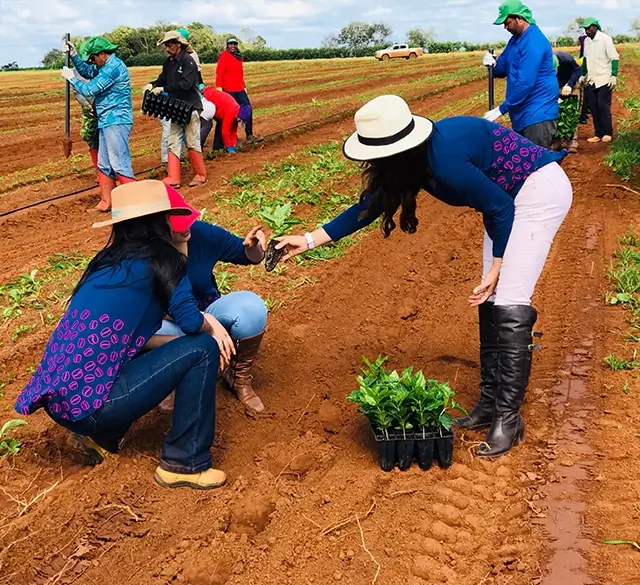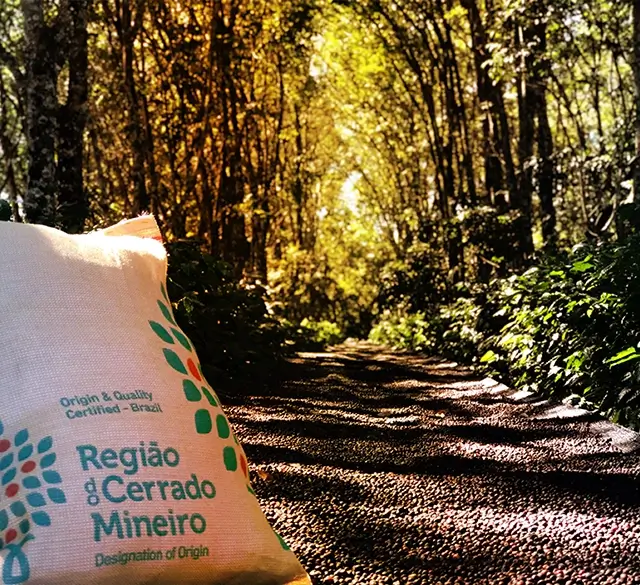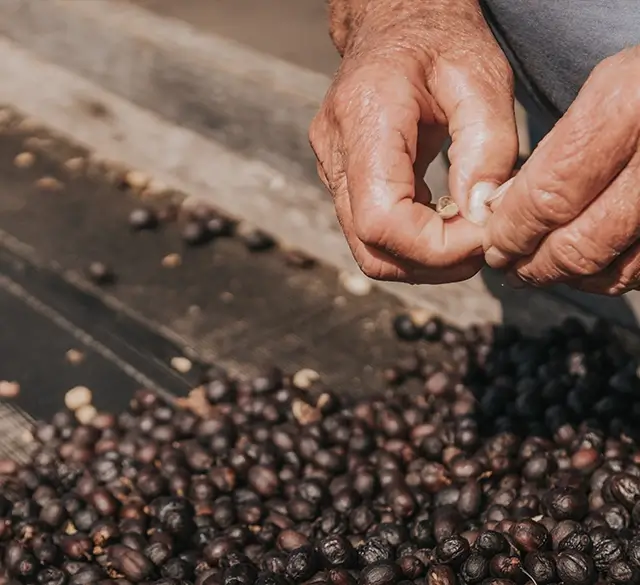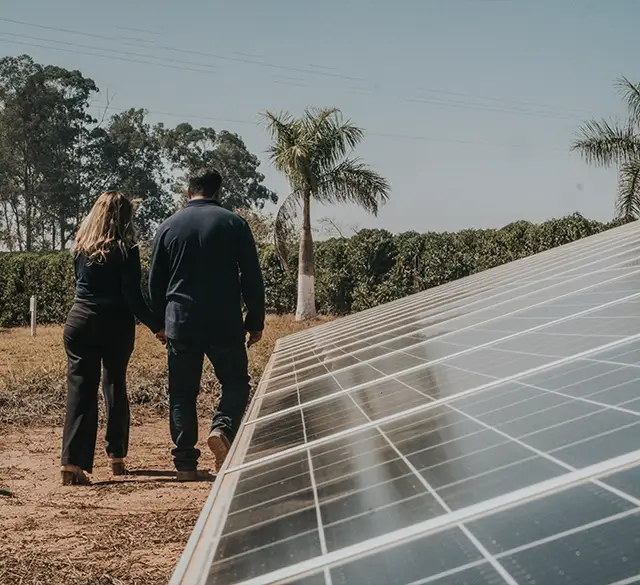Regenerative
Agriculture
The coffee industry is increasingly embracing agricultural practices that prioritize soil health and minimize environmental impact, known as regenerative agriculture.
In line with this objective, Syngenta and Nutrade have established initiatives such as Nucoffee Sustentia—a platform aimed at promoting coffee sustainability and encouraging coffee producers to adopt a range of best practices.
These include incentivizing and rewarding the implementation of more sustainable methodologies. Recently, climate-related concerns, especially the carbon footprint, have become integrated into this initiative.
The company Agrorobótica leads the measurement process, empowering producers to effectively measure carbon emissions associated with their activities.

Sustainability
With a strong focus on sustainability, the project also addresses the concept of carbon sequestration, allowing farms to offset or neutralize their carbon emissions.
Management
While this carbon management mindset is more advanced in other crops, such as soybeans, in the coffee sector, it remains a project in development.
Opportunity
Nevertheless, there is a significant opportunity to generate revenue through positive carbon.
General Objectives
And Collaborations
The pilot carbon measurement project is underway, focusing efforts on assessing the impact of carbon in various regions where coffee farms are located.
This strategic initiative aims to understand and quantify the environmental impact of coffee farming.
Currently in its early stages, the project not only promises environmental benefits to the coffee sector but also seeks to create financial opportunities.
This occurs through the recognition and commercialization of coffees distinguished by their reduced carbon footprint and contributions to environmental preservation.

Research
Methodology
In an effort to evaluate the impact of adopting regenerative agriculture practices on coffee cultivation and its correlation with the carbon balance, Syngenta/Nutrade and Agrorobótica (a spin-off from Embrapa Instrumentação) conducted an extensive study involving coffee growers across different regions of Minas Gerais and São Paulo.
The project encompassed 25 coffee farms spanning a total area of 1500 hectares, distributed across prominent coffee-producing regions: Cerrado de Minas, Sul de Minas, Mata de Minas, and Alta Mogiana.
These regions were categorized based on their technology adoption level (mechanization) and their incorporation of regenerative agriculture practices, such as utilizing cover crops and organomineral fertilizers.

Responsibilities
An exhaustive assessment was conducted across all farms and producers to ensure compliance with social and environmental responsibilities, revealing no issues related to labor or deforestation.
Technology
Soil sampling was performed on all properties to conduct on-site evaluations of soil carbon levels using LIBS technology (Embrapa/Agrorobótica). This innovative analytical technique, internationally recognized and previously employed by NASA on Mars, was utilized.
Gas Emission
Greenhouse gas (GHG) emissions resulting from coffee cultivation inputs (e.g., limestone, fertilizers, fuel, etc.) were quantified, and sources of carbon capture were considered—mainly through carbon sequestration in soil and coffee plant biomass.
Results
The findings indicated a negative carbon balance across all coffee plantations, suggesting that these plantations sequester more carbon than they emit in GHGs.
Properties that embraced regenerative and conservationist practices exhibited even higher levels of additional carbon sequestration.

The Path Forward
Adopting New Practices
Agriculture holds the potential to play a pivotal role in mitigating greenhouse gas emissions, offering additional benefits beyond carbon sequestration, including improved soil health, water quality, and biodiversity conservation.
Producers were advised to implement practices such as enhanced soil coverage, the use of green manure and cover crops, and the adoption of fertilizers with reduced GHG emission potential, such as protected urea or organominerals.




